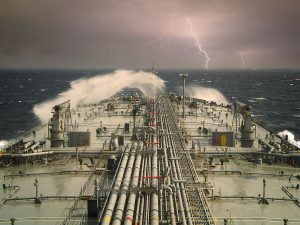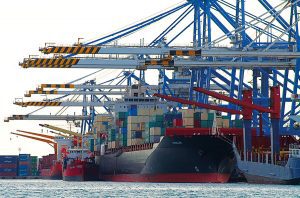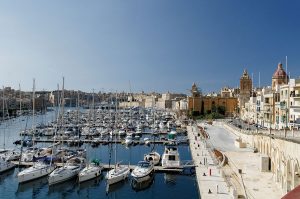The University Maritime Platform, a dedicated space for all those interested in the sea and the work happening around it. Prof. Claire De Marco writes.
Malta’s strategic position in the Mediterranean Sea has impacted its history, culture, and economy. It has also given birth to a vast maritime industry, covering a plethora of areas-—legal, environmental, engineering, marine, archaeology, and geology, to name only a few. Identifying this, the government has prioritised the maritime sector. However, it has also recognised that a more integrated approach between stakeholders is required to adopt a strategy for the development of new and improved services on our islands. 
While essential to the industrial sector, this unified strategy should not be limited to it, but extended beyond, into academia. The University of Malta (UoM) has a critical capacity to develop new technologies, to empower a new generation of scientists, professionals and industrialists, and to create maritime-related services and jobs. The UoM meets these challenges by providing a framework for research and innovation, allowing many academics within their respective faculties to meticulously work on their own areas of interest. Being that the UoM is a multidisciplinary institution with many faculties, institutes, and centres, academics would be vaguely aware of the persons working and researching within the maritime area, but details can be missed. Complementary expertise may also exist within the UoM that, if not referenced, may result in the duplication of work.
Academics would be vaguely aware of the persons working and researching within the maritime area, but details can be missed.
To address this, a dedicated platform was created with focus on the maritime theme. The University Maritime Platform was officially launched in March 2017. The platform not only facilitates collaboration between UoM entities and individual academics, but also allows the maritime industry, both local and international, a common point of entrance for maritime enquiries at the UoM, promoting cooperation between clusters, centres, programmes, networks, and individuals with similar purpose and scope.
Getting connected
Research and innovation is a fundamental pillar of a university. The UoM’s framework for academics, departments and research groups involves entities such as the Knowledge Transfer Office, the Research Support Services Directorate, and Project Support, all of whom work in tandem to provide not just information on potential opportunities at hand and avenues for exchange of expertise, but hands-on guidance for funding applications. The platform will work alongside these groups, according to the platform’s scope, to aid those involved in maritime activity.
Even at these early stages of the platform’s development, academic members have been registering: a clear indication that it addresses a present need for connection and communication among peers.
The second pillar is education, training, and development. The UoM already hosts many academic marine-related programmes and individual study units covering a wide range of disciplines. A database of these is being compiled with the collaborating university entities which will allow interested parties to follow the courses either in their entirety or selected individual units. For those external to the UoM, this will ease the process of finding a suitable maritime programme by making relevant information easier to find and utilise. Short course training programmes are also to be included, creating possibilities for training, work placements, and educational and research scholarships. This education and training empowers a new generation of the workforce to have an effective impact on the maritime sector, by providing the necessary skills, knowledge, and expertise for graduates to become effective contributors to the maritime industry both locally and internationally. Even at this early stage of the platform’s development, academic members have been registering: a clear indication that it addresses a present need for connection and communication among peers.
The next step in the platform’s evolution is to set up focus groups, containing committee and academic members from the platform, together with non-university experts from the industry. Events will be planned, enabling members and external groups to meet and learn more about each other, providing much-needed networking opportunities, as well as showcasing the UoM’s potential to attract groups, persons, and industry players who may also be willing to support the platform in any possible way.
The platform will be made successful by university and industry-wide combined effort, contribution, and collaboration. Surmounting these challenges will secure the platform as a recognised member forming part of a coordinated network of universities, maritime centres, institutes, enterprises and innovative players.
Communication between all entities is the recipe for success, and maintaining a portal for discussion and dissemination of knowledge is paramount. With this dialogue, the platform can be used as a point of reference, information, and expertise and also be in a position to influence maritime policy with respect to relevant national and international initiatives and programmes.




Comments are closed for this article!